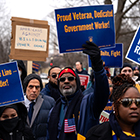
Will Federal Workers Rediscover Their Militancy?
Trump has destroyed a federal system of labor relations that helped contain conflict for decades. The move could have unintended consequences.


Trump has destroyed a federal system of labor relations that helped contain conflict for decades. The move could have unintended consequences.
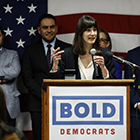
Progressives need to fight and organize for a politics that focuses on class inequality in a consistent and persuasive way.

Worker centers organize workers excluded from labor regulations and disconnected from mainstream unions. They have brought fresh energy to the labor movement.

Steven Pitts and Robin D.G. Kelley discuss Amazon and the state of the Black working class.

Jo Grady, general secretary of the University and College Union in the United Kingdom, talks about the prospects for a truly feminist labor movement.
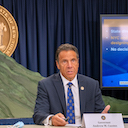
Rita Pasarell, former Albany legislative staffer and co-founder of the Sexual Harassment Working Group, discusses recent accusations against Andrew Cuomo.

Celine McNicholas of the Economic Policy Institute digs into the PRO Act and other labor policies currently on the table.
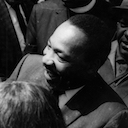
Despite the outpouring of praise for essential workers during the COVID-19 pandemic, their own interests continue to come second to the broader public’s need for cheap and reliable labor.
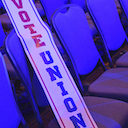
Absent a sufficient level of density to carry the swing states, unions are seeking to turn out not just their own members but sympathetic communities as well.

We can only understand the left’s present dilemmas by seeing them in light of the conflicted legacy of the New Deal.

The latest numbers on union membership in the public and private sectors are not pretty.
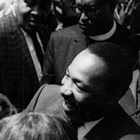
In his unstinting backing of unions, Martin Luther King, Jr. made clear that racism was rooted in a long and stubborn history of class injustice.
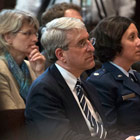
Top university officials at Columbia and Yale have found in Trump an ally in their longstanding efforts to resist graduate employees’ efforts to unionize.

Attacks on public-sector unions are setbacks not just for organized labor but for anyone who believes the state should ensure access to basic social needs.
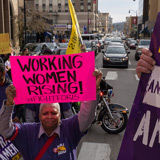
For U.S. labor, this is a moment of great peril but also great potential, unmatched since the New Deal era.